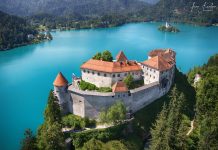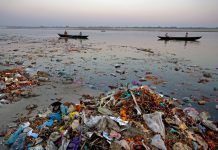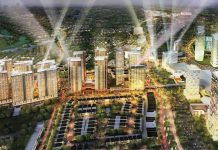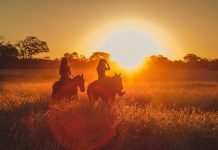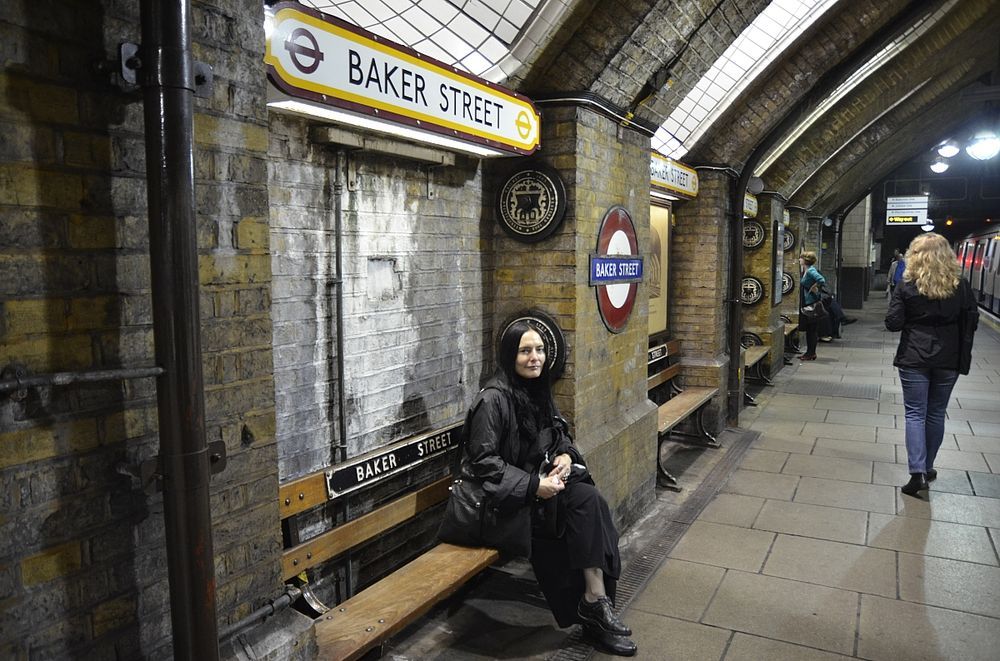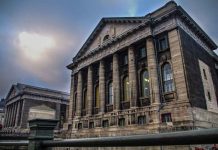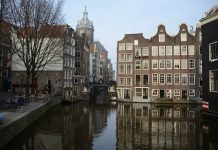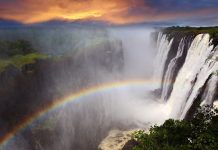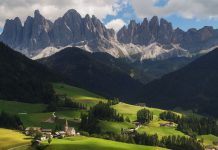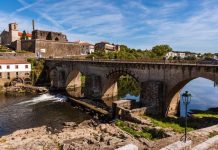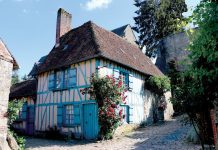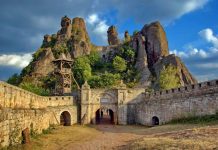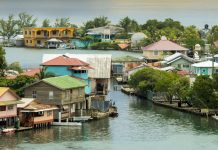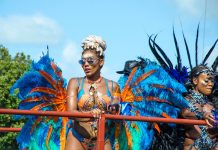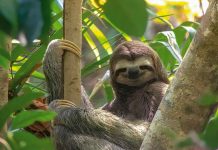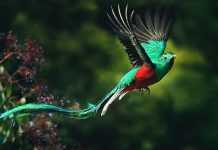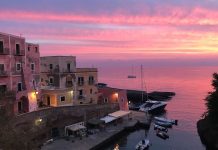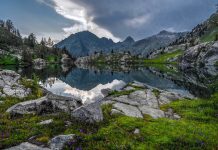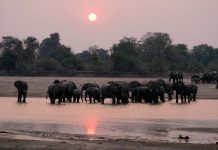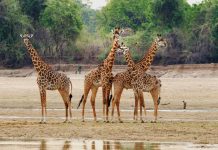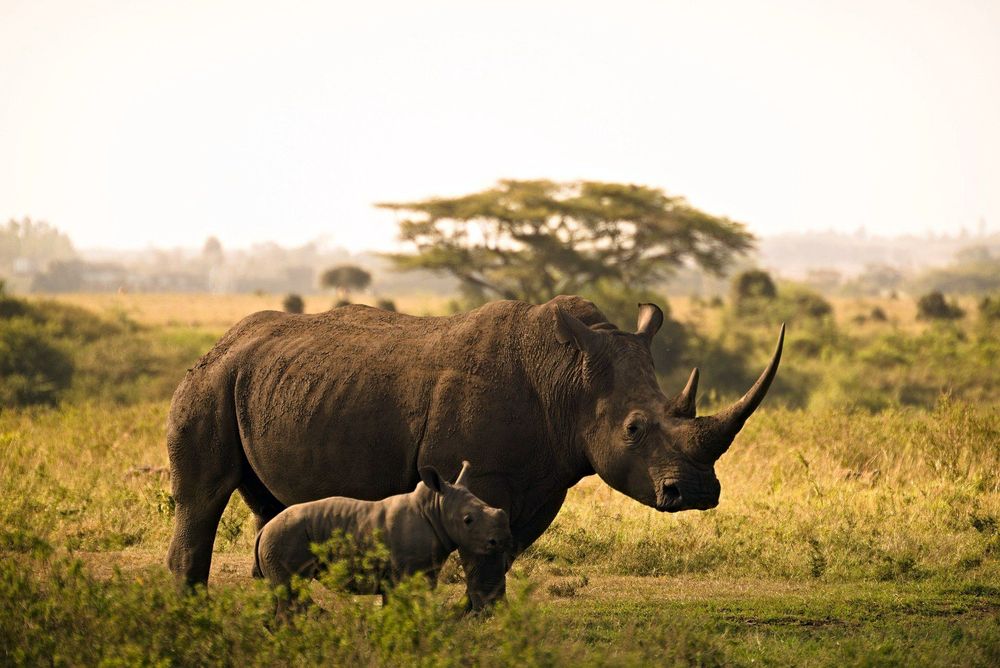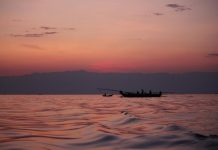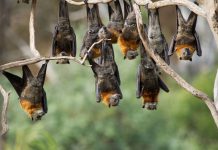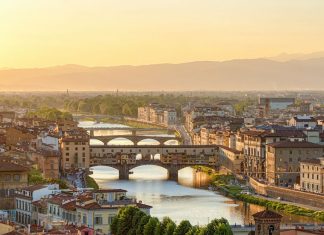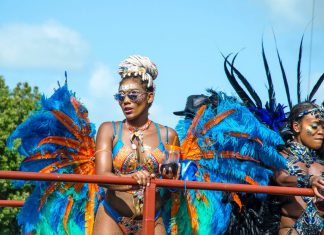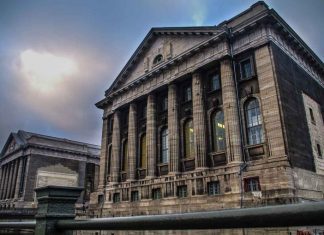The 117 km2 Nairobi National Park is unique by being the only protected area in the world with a variety of animals and birds close to a capital city. As expected, the park is a principal attraction for visitors to Nairobi.
The park also serves many residents and citizens living in the city The park has a diversity of environments with characteristic fauna and flora. Open grass plains with scattered acacia bush are predominant. The western side has a highland dry forest and a permanent river with a riverine forest in the south. In addition, there are stretches of broken bush country and deep, rocky valleys and gorges with scrub and long grass. Man-made dams have also added a further habitat, favourable to certain species of birds and other aquatic biota(life forms). The dams also attract water dependent herbivores during the dry season.
The park has a rich/diverse birdlife with 400 species recorded. However all species are not always present and some are seasonal. Northern migrants pass through the park primarily during late March through April.
Nairobi National Park is one of the most successful of Kenya’s rhino sanctuaries that is already generating a stock for reintroduction in the species former range and other upcoming sanctuaries. Due to this success, it is one of the few parks where a visitor can be certain of seeing a black rhino in its natural habitat.
To the south of the park is the Athi-Kapiti Plains and Kitengela Migration and dispersal area. These are vital areas for herbivores dispersal during the rains and concentrate in the park in the dry season.
MAJOR ATTRACTIONS
- Annual wildebeest and zebra migration in July/August
- Black rhinoceros
- Diverse birdlife
- Large predators- lion, leopard, hyena and cheetah.
- Aggregations of large herbivores- eland, buffalo, zebra and wildebeest
- Ivory Burning Site Monument
- Walking trails at hippo pools
- Nairobi Safari Walk & the Orphanage.
- Spacious accomodating picnic sites
HOW TO GET THERE
Roads:
Located only about 7 km from the city centre, the park is easily accessible on tarmac roads, mainly through Langata Road.
Park Roads:
There is an adequate administration and viewing road network with satisfactory signage.
Park gates:
The park has seven gates, the main gate at KWS headquarters, East Gate, Cheetah Gate, Lang’ata Gate, Maasai Gate: Mbagathi and Banda Gate are service gates and therefore not used by tourists.
FACILITIES
There are no accommodation facilities in the park. But a wide range of well developed accommodation facilities are available in the city. Further, there is also the Masai Safari Lodge near the park.
Picnic Sites:
- Impala Observation Tower;
- Ivory Burning Site;
- King Fisher Gorge;
- Leopard Cliffs;
- Mokoiyet;
- Hippo Pool;
Other attractions
- Lone Tree
- Directors tree planting site
Nature Trails:
The park has one nature trail at the Hippo Pool
COMMON VEGETATION
The vegetation is primarily dry savanna, open grass plains with scattered acacia bushes. The park also has a permanent river with a riverine forest.
The western upland areas has an upland dry forest with stands of Olea africana and Croton dichogamus/Brachylaena hutchinsii and calodendrum. The lower slopes are a grassland composed of such species as: Themeda, Cyprus, Digitaria, and Cynodon with scattered yellow-barked acacia, Acacia xanthophloea. In addition there are stretches of broken bush country and deep rocky valleys and gorges with scrub and long grass.
There is gallery forest in the valleys, predominantly Acacia spp., and Euphobia candelabrum. Other tree species include Apodytes dimidiata, Canthium schimperanum, Elaeodendron buchananii, Newtonia sp., Ficus eriocarpa, Aspilia mossambicensis, and Rhus natalensis.
Several plants growing on the rocky hillsides are unique to the Nairobi area including Euphobia brevitorta, Drimia calcarata, Murdannia clarkeana and the crassula sp.

